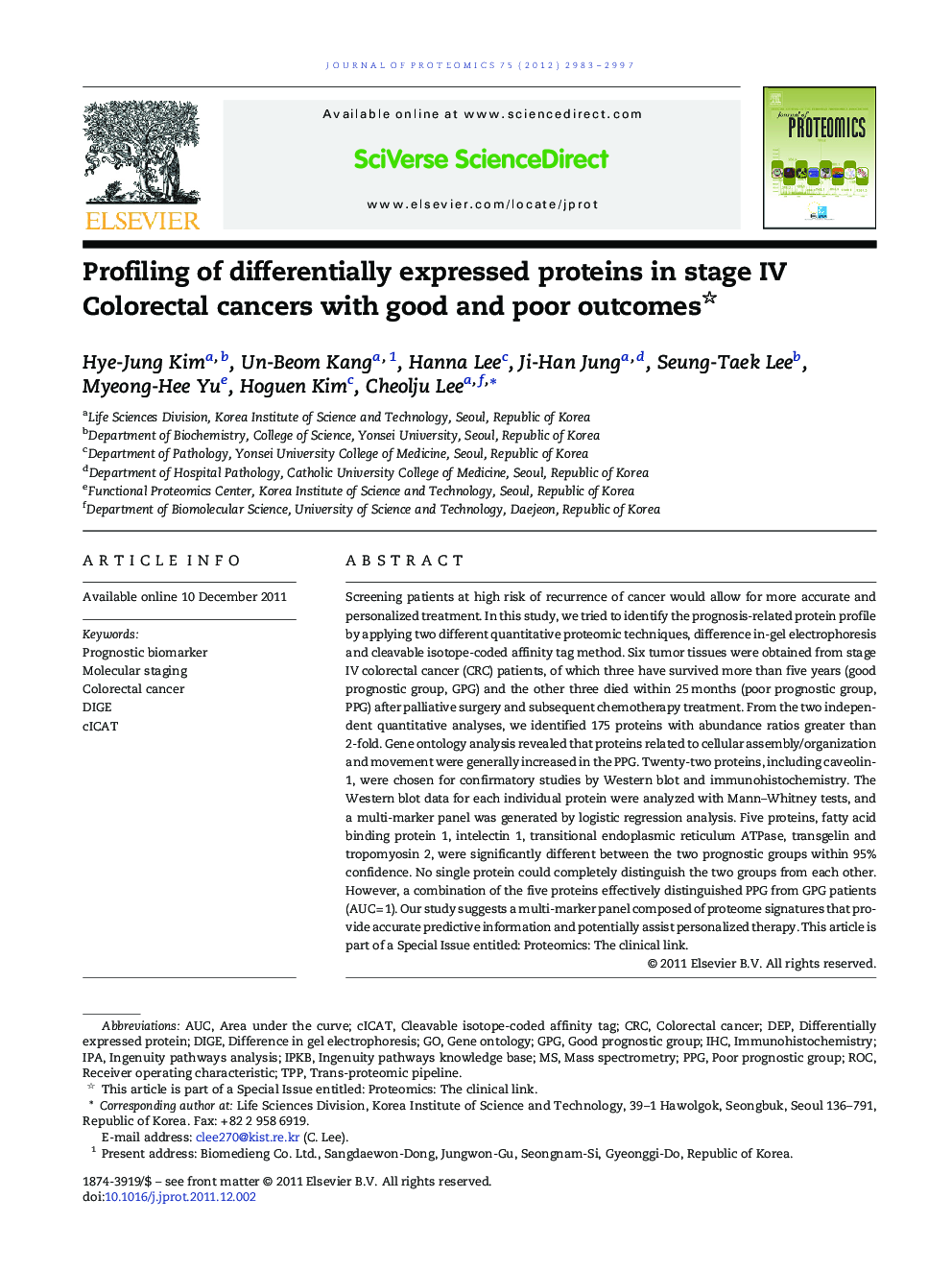| کد مقاله | کد نشریه | سال انتشار | مقاله انگلیسی | نسخه تمام متن |
|---|---|---|---|---|
| 1225244 | 968195 | 2012 | 15 صفحه PDF | دانلود رایگان |

Screening patients at high risk of recurrence of cancer would allow for more accurate and personalized treatment. In this study, we tried to identify the prognosis-related protein profile by applying two different quantitative proteomic techniques, difference in-gel electrophoresis and cleavable isotope-coded affinity tag method. Six tumor tissues were obtained from stage IV colorectal cancer (CRC) patients, of which three have survived more than five years (good prognostic group, GPG) and the other three died within 25 months (poor prognostic group, PPG) after palliative surgery and subsequent chemotherapy treatment. From the two independent quantitative analyses, we identified 175 proteins with abundance ratios greater than 2-fold. Gene ontology analysis revealed that proteins related to cellular assembly/organization and movement were generally increased in the PPG. Twenty-two proteins, including caveolin-1, were chosen for confirmatory studies by Western blot and immunohistochemistry. The Western blot data for each individual protein were analyzed with Mann–Whitney tests, and a multi-marker panel was generated by logistic regression analysis. Five proteins, fatty acid binding protein 1, intelectin 1, transitional endoplasmic reticulum ATPase, transgelin and tropomyosin 2, were significantly different between the two prognostic groups within 95% confidence. No single protein could completely distinguish the two groups from each other. However, a combination of the five proteins effectively distinguished PPG from GPG patients (AUC = 1). Our study suggests a multi-marker panel composed of proteome signatures that provide accurate predictive information and potentially assist personalized therapy. This article is part of a Special Issue entitled: Proteomics: The clinical link.
Figure optionsDownload high-quality image (95 K)Download as PowerPoint slideHighlights
► Screening patients at high risk of recurrence of cancer is important.
► We identify the prognosis-related protein profile by DIGE and cICAT.
► A multimarker panel consisting of five proteins is generated.
► The panel effectively distinguishes good prognosis patients from poor prognosis patients.
Journal: Journal of Proteomics - Volume 75, Issue 10, 6 June 2012, Pages 2983–2997